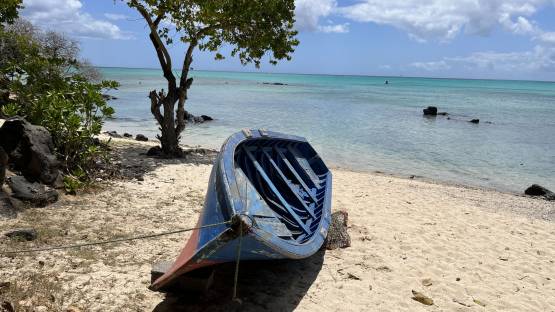Growing demands from tourism and agriculture in many island states are putting stress on limited water supplies that are under increasing pressure from climate change. This situation makes it challenging for them to secure reliable water supplies. To face the challenge, many countries are over-abstracting groundwater, which leads to a greater risk of contamination, depletion, and saltwater intrusion.
Here’s where nuclear science comes into play: Isotope hydrology increases the capacity of island states to monitor and better manage their water resources. It also helps them optimize their groundwater resources, highlighted speakers of an IAEA #Atoms4Climate side event at the United Nations Climate Change Conference (COP27) in Sharm El-Sheikh, Egypt.
Matthew Samuda, Jamaica’s Minister without Portfolio in the Ministry of Economic Growth and Job Creation, pointed out that 70 per cent of his country’s population live within 5 km of the coast in low lying areas. The coastal zones are more vulnerable to sea level rise and associated problems such as salinization of groundwater.
“It’s absolutely critical that we mobilize funds for mitigation and adaptation,” he said. “And it is reassuring to have the IAEA giving us the science to better understand our water resources and the sort of certainty on where we must invest.”
Another island nation, Malta, a water scarce country for centuries, has long been actively investing in their water resources. But climate change is presenting a new set of challenges as sea level rise threatens the groundwater resources on which they depend.
Manuel Sapiano, CEO of Malta’s Energy and Water Agency, emphasized that this was a critical issue for his country. Malta has historically been dependent on groundwater and is focussed on protecting this resource.
“Knowing whether it is fresh water or old seawater helps to define the interventions that we take today,” he said.
A key component of such interventions are isotope techniques to determine the age of the groundwater resources, which may range from months to millions of years. This helps scientists detect the presence of contaminants and to understand how quickly aquifers are replenished.
Yuliya Vystavna, a senior IAEA technical officer who moderated the event, explained one of the key activities of the IAEA: producing scientific knowledge and transferring it to countries through national, regional or inter-regional projects.
“IAEA technical cooperation projects support countries across the world in strengthening national capacity to plan and manage water resources,” she said.
The IAEA Technical Cooperation Programme indeed offers dedicated programmes for island states, added Martin Krause, Director of Programme Coordination at the Agency’s Department of Technical Cooperation.
“We build capacity for young scientists who want to acquire specific expertise in nuclear techniques through fellowships, training events, networks,” he said.
It may not be realistic to create capacity in all the aspects of nuclear science on each island, he added. “Sharing laboratories across a number of islands, sharing knowledge could be one way of increasing the capacity to deal with sophisticated scientific technologies. The University of the West Indies in Jamaica can help pool the intellectual resources to serve the whole region.”
You can watch the full recording here.
Join us at the IAEA’s International Symposium on Isotope Hydrology, to be held from 3 to 7 July 2023 in Vienna, Austria, to find out more about the role of nuclear science in mitigating and adapting to climate change.
It is reassuring to have the IAEA giving us the science to better understand our water resources and the sort of certainty on where we must invest.



